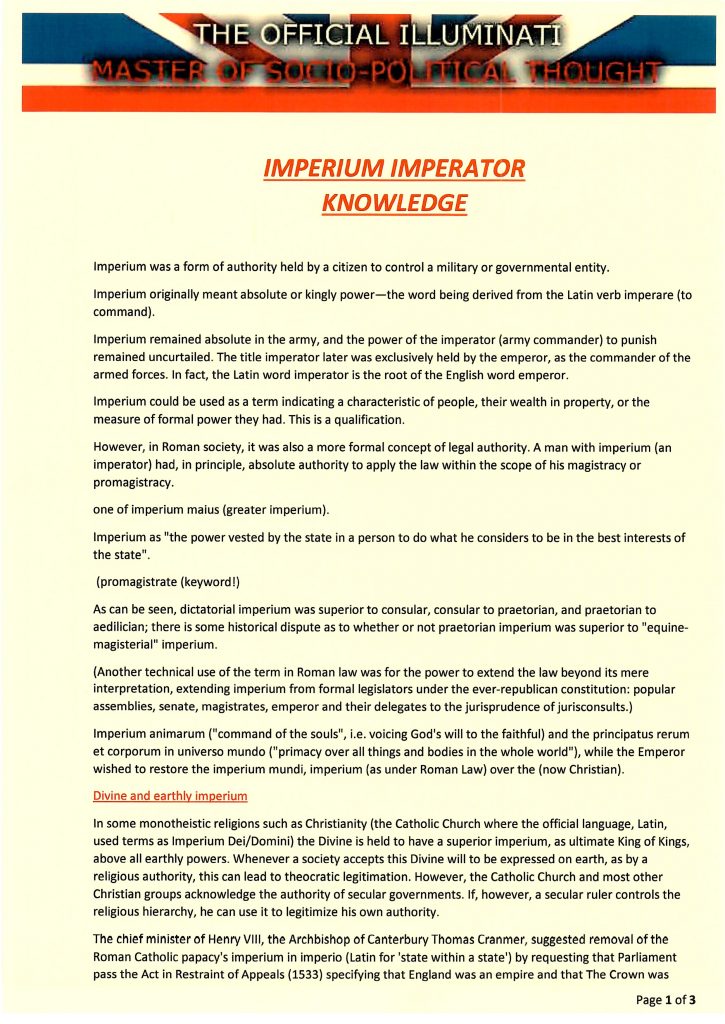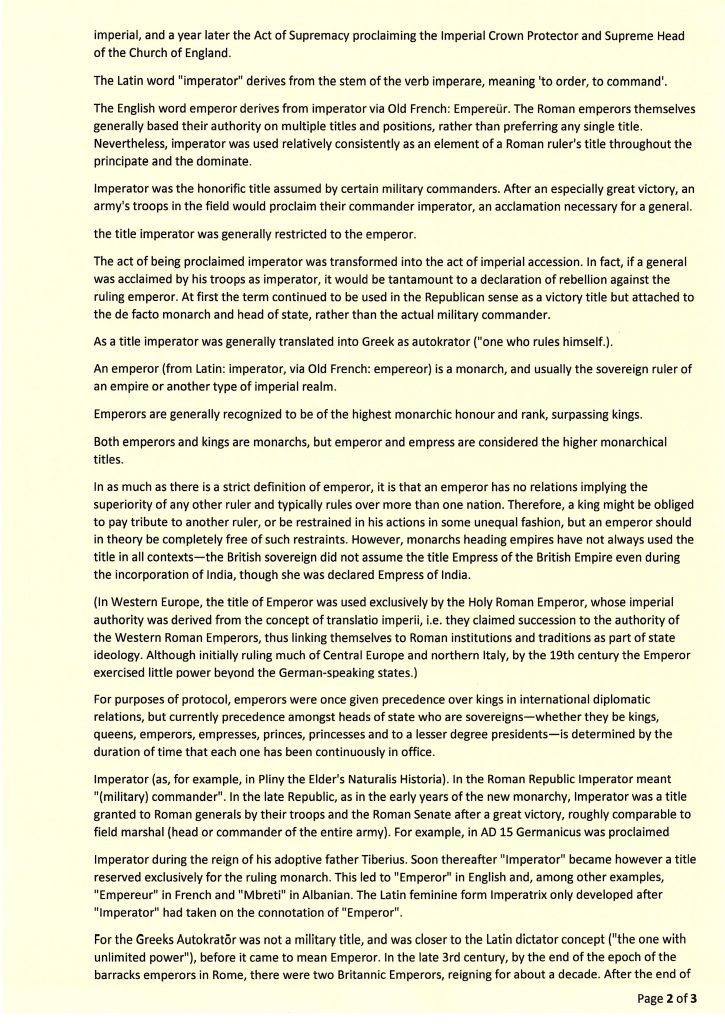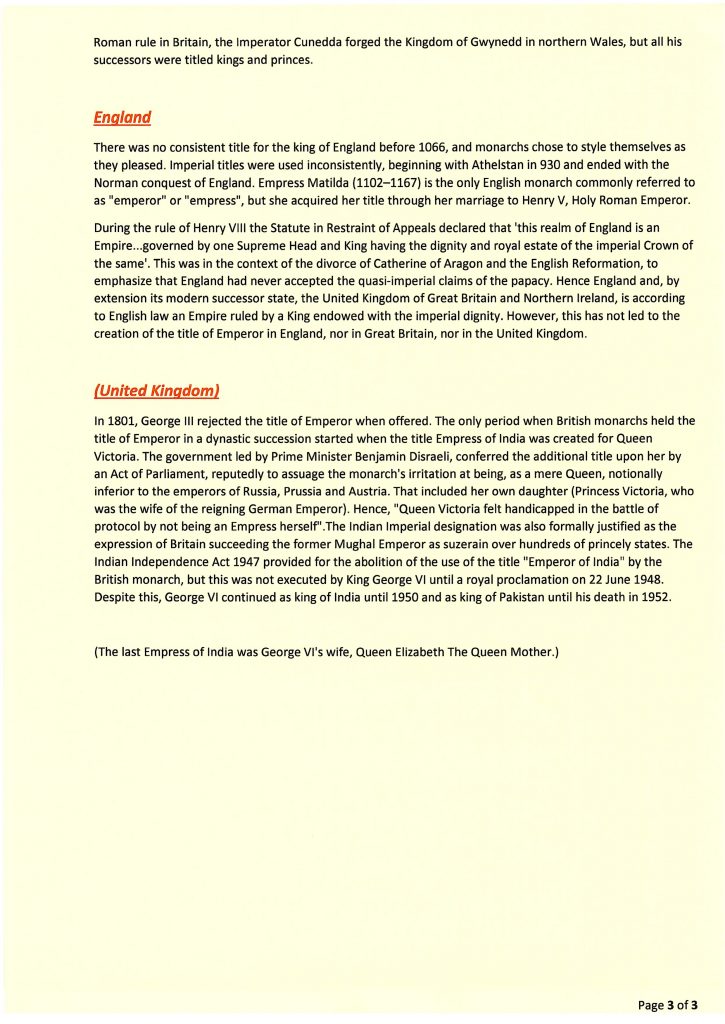

The title “Imperator” has historical roots, most notably used in ancient Rome, but without a specific contemporary context, it’s challenging to define its duties precisely. However, I can provide a general overview based on historical of the term and speculate on what the duties of an “Imperator” might involve in various contexts:
1. Historical Roman Context: In ancient Rome, the title “Imperator” was initially a title given to a Roman general after a significant victory, recognized by his troops’ acclamation. It was a title of honor that signified the commander’s authority and ability to command. Over time, it became closely associated with the Roman Emperors, starting from Augustus. In this context, the duties of an Imperator would involve military leadership, governance, and the administration of the territories under his control. This would include making strategic decisions, leading military campaigns, ensuring the security and prosperity of the empire, and acting as a supreme judge and religious figure in some capacities.
2. Modern Ceremonial or Symbolic Role: In a contemporary setting, if the title “Imperator” is used in a ceremonial or symbolic capacity, the duties might be significantly different and largely depend on the specific institution or context it is associated with. The role could involve representing an organization or community at official events, participating in ceremonial functions, and potentially acting as a liaison or ambassador for certain causes or groups.
3. Leadership within an Organization: If the title is used within the framework of a modern organization, whether corporate, charitable, or another form, the duties of an Imperator would likely align with those of a high-ranking official or executive. This could involve setting strategic direction, making key decisions, overseeing operations, and ensuring the organization’s goals are met. The Imperator might also be responsible for stakeholder communication, representing the organization in public or official capacities, and fostering relationships with other organizations or entities.
4. Governance and Administration: In a context where “Imperator” refers to a position of governance, the duties might include the formulation and implementation of policies, oversight of administrative functions, and ensuring the welfare of the population or members under the Imperator’s jurisdiction. This could also involve financial oversight, resource allocation, and addressing issues related to justice and security.
5. Cultural or Educational Role: In some cases, an Imperator might be a title used within cultural, educational, or religious institutions. Here, the duties could involve preserving traditions, promoting education or cultural values, overseeing ceremonies or rituals, and guiding the institution according to its founding principles and objectives.
6. Advisory and Consultative Role: The Imperator might also serve in an advisory capacity, providing counsel and expertise to organizations, governments, or leaders. This would involve analyzing situations, recommending strategies, and using their knowledge and experience to guide decision-making processes.
7. Advocacy and Representation: Lastly, an Imperator could be tasked with advocacy work, representing the interests of a particular community, cause, or set of values. This would involve campaigning, raising awareness, and working towards societal, environmental, or political objectives.
Without specific details on the context in which the title “Imperator” is being used, these interpretations are speculative. The actual duties would depend on the legal, organizational, or societal framework within which the title operates.
QUITE FRANKLY IT IS A TITLE MEANING ‘EMPEROR’ IN A WIDER SENSE AS A TITLE OF SOVEREIGNTY CONSIDERED SUPERIOR TO THAT OF KING!
Ps
I am not a subject, I am a servant providing a service serving in a capacity superior to that of king!

